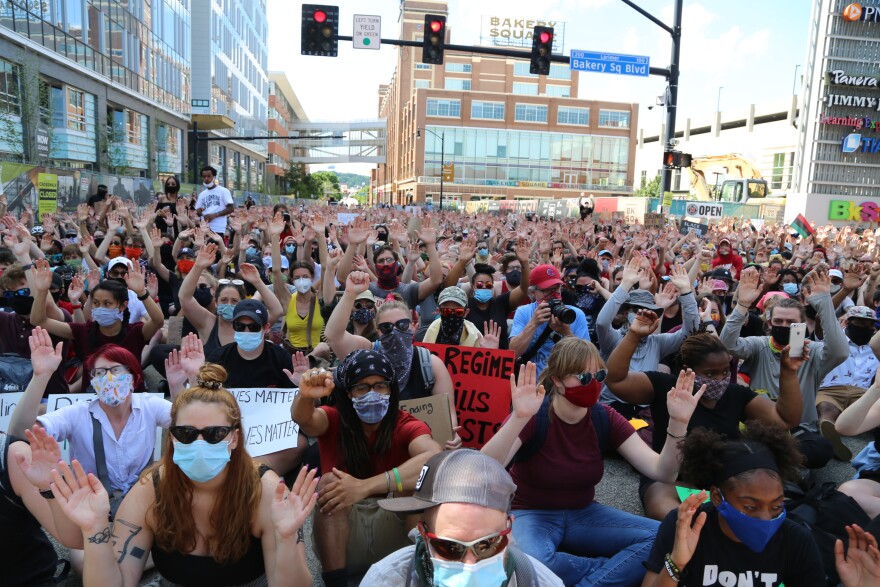The Pennsylvania Supreme Court will review questions related to the state’s use of force statute ahead of the homicide trial of former Philadelphia police officer Ryan Pownall. Pownall fatally shot 30-year-old David Jones during a traffic stop in 2017.
Philadelphia District Attorney Larry Krasner filed a pre-trial appeal that, if successful, could change how the jury interprets Pennsylvania’s use of force law. The statute offers police officers wide latitude to employ deadly force, something Krasner argues is unconstitutional.
“The people deserve a consistent and fair standard for when violence may be used against them by the state, in a manner that complies with our constitutions,” Krasner told WESA’s The Confluence.
The state’s highest court agreed to consider the appeal last week.
“This a democracy … this is a place where we believe in individual rights. We don’t just believe that a police officer can gun you down when you’re unarmed and running away,” Krasner said.
“At the time that David Jones was shot he had already run away from this police officer, and yet he was shot [in the] back. He was then shot again as he ran even further away with nothing in his hands.”
The Philadelphia Fraternal Order of Police declined to comment on the appeal and what it could mean for the state’s use of force law. Fourtunato Perri, a Philadelphia lawyer representing Pownall, did not respond to request for comment.
The statute has been criticized by racial justice activists and legislators alike. A bill introduced by Pennsylvania State Reps. Summer Lee and Ed Gainey would alter the statute to permit an officer to use deadly force only when life is at stake and non-lethal methods have failed. The bill has languished since 2019.

For 16 straight Saturdays last summer, protesters in Pittsburgh called for changes to the state’s use of force law. Activists said the law acquitted former East Pittsburgh police officer Michael Rosfeld in 2019 for the shooting death of 17-year-old Antwon Rose. Rose, like Jones, was fleeing the scene when Rosfeld shot him in the back.
“It’s pretty problematic that any law, any kind of jury instruction would justify that,” Krasner said about the statute. “Especially when we see that the United States Supreme Court has said something very different.”
In 1985, the United States Supreme Court struck down a Tennessee statute that allowed a police officer to “use all the necessary means to effect the arrest” of an individual whom the officer suspected was fleeing or forcibly resisting detention but did not pose a danger. The Tennessee v. Garner decision reads in part:
“The use of deadly force to prevent the escape of all felony suspects, whatever the circumstances, is constitutionally unreasonable.” Krasner said the state supreme court is doing its job in reviewing the legislation.
Fortunado Perri, Pownall’s attorney, told WHYY the appeal helps prove his client justifiably shot Jones. “Clearly the existing law justifies his conduct,” he said last January.
Krasner said the statute’s current language has allowed for unchecked violence in policing.
“We’ve gotten to a point of a vacuum of accountability when it comes to police violence against civilians ... against Black people in particular,” he said. "We have an awful lot of experience ... with prosecutors looking the other way."
Krasner said community distrust of police makes it difficult for prosecutors to get witnesses to testify in police brutality cases.
“The important thing is that we don’t have one set of rules for a particular cast in our society,” Krasner said. “And a different set of rules that apply to the rest of us.”
It’s unclear when the state Supreme Court will hear arguments on the matter.





